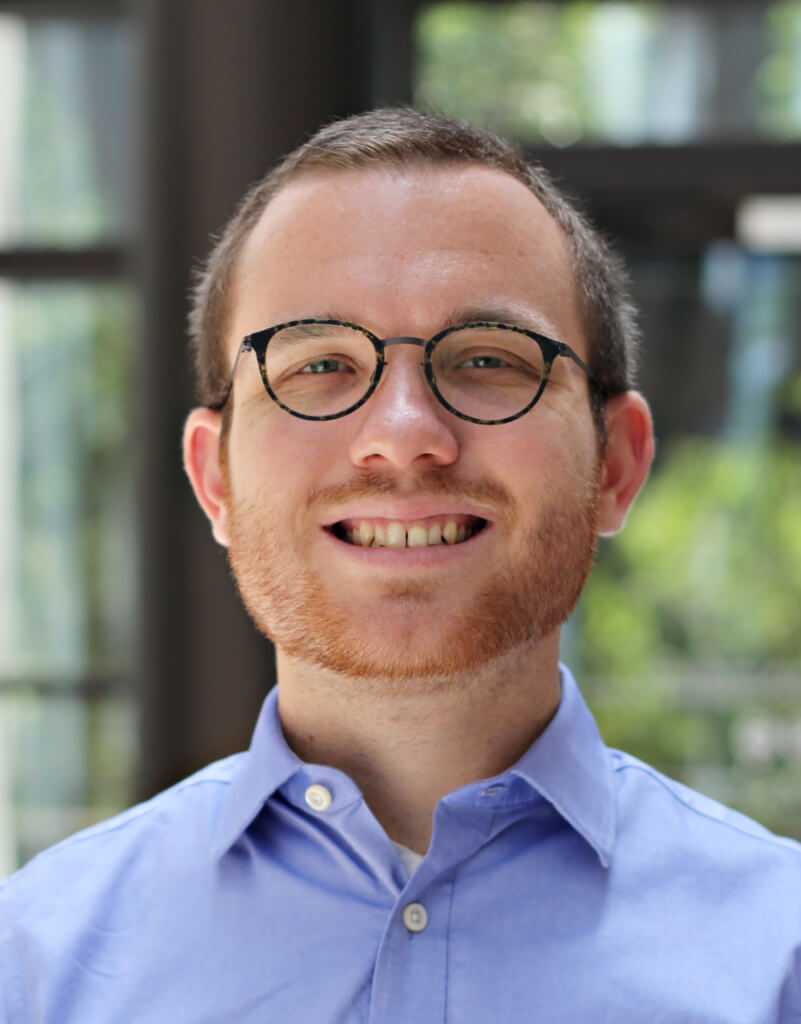10/20/20 - News
Meet Bryan Zubay
SHJ is pleased to welcome associate Bryan Zubay to our team. Prior to joining the firm, Bryan clerked for two judges in the Southern District of Texas: the Honorable Judge George C. Hanks Jr. and the Honorable Magistrate Judge Peter Bray. Previously, Bryan spent nearly two years as an associate in King & Spalding’s Trial and Global Disputes group after graduating from the University of Texas School of Law in 2016.
Here, we’ve asked Bryan to discuss his prior work experience, first impressions of SHJ, and commitment to LGBTQ pro bono work.
When did you become interested in pursuing law?
In college, I realized that the intellectual and academic practices I enjoyed the most involved learning about a wide array of issues and personal stories. I was also interested in how our legal system balances the many competing interests at issue in any given dispute to decide how to resolve the dispute. I knew that a legal career would be the best way for me to help people and businesses advance their goals, rights, or interests, so I decided to apply to law school directly after graduation.
How did you connect with SHJ?
My clerkships offered so many opportunities, and one of them was to learn as much as I could about many types of practices with which I was previously unfamiliar. I researched many options my first year clerking, and settled on pursuing a position at a smaller, Houston-based firm that served a diverse array of clients. Crucially, the firm had to be serious about giving associates leadership opportunities.
I came across SHJ’s website in my research, and I was immediately impressed by the breadth and depth of their bench—if you just peruse the attorneys’ profiles, you’ll see what I mean. It also seemed like they were very dedicated to pro bono work, which was an important value alignment. And because several of their partners came from King & Spalding, where I’d worked as an associate, I thought it would probably be a good culture fit, too. Although I had not met lawyers from SHJ before, all of my mentors knew the firm and spoke to its sterling reputation.
I emailed SHJ to express my interest in the position and spoke with Adam Dinnell on the phone, then had some Zoom calls with other partners and associates. Talking to the SHJ lawyers was surprisingly fun—they’re a great, friendly group of people who take the job seriously but not themselves. They seemed to enjoy and respect the practice of law. I also sensed that the partners make every effort to support and guide associates who want to take initiative. I felt like I could benefit from some really substantive opportunities at this firm.
How do your experiences as a judicial clerk and a BigLaw associate inform your approach to law?
At King & Spalding, I was fortunate to work for people who cared about mentoring associates and providing them with rewarding opportunities for growth, and that made me very eager to keep assuming higher and higher levels of responsibility as I gained more experience in the profession.
My clerkship positions broadened my perspective of the legal landscape beyond BigLaw. I worked on many cases in areas of law I was unfamiliar with, and having that variety helped me to better understand the anatomy of all cases. Additionally, my judges trained their clerks to really home in on the fundamentals, which I’ve found to be so valuable. A lot of the exceptional outcomes you get in cases aren’t due to some magical “eureka” moment, but because you took the time to conduct an incredibly detail-oriented, thorough review of everything. Often the determinative details are hiding in plain sight.
I also became really interested in the ways I could tell a powerful story for my clients, especially after working on trials in our court. There is so much information presented in trial, and the best lawyers organize all that information in a way that made it easier for the judge or jury to understand. Clerking helped me see how a good story works as a paradigm that helps the audience organize the evidence. Before joining the firm, I enrolled in a creative writing course at Rice—both for personal enrichment and to strengthen my ability to work with clients to explain their side of a dispute. No matter the medium, you need to be able to present huge amounts of information in clear, compelling patterns to whoever’s deciding your case.
How does your passion for LGBTQ rights intersect with your legal career?
As a member of the LGBTQ community, I’ve always tried to integrate advocacy into my professional life. At the University of Texas, I participated in the school’s Pro Bono Scholars Program, through which a group of law students conducted outreach, sourced clients, and developed all the paperwork needed to launch pro bono projects. Then, in my final year of law school, I took everything I’d learned there and used it to found a service called the Trans Name and Gender Marker Project (now the “Gender Affirmation Project”), which assists trans individuals with filing the court documents they need to correct their legal name and gender marker.
I intend to carry that experience and commitment forward in my legal career. After graduation, I helped set up a clinic in Houston that provides the same services to people in the area, and I’m continuing to volunteer there. As I gain more experience as a lawyer, I’m looking forward to taking on substantial pro bono cases where good representation can really make a difference in people’s lives.
